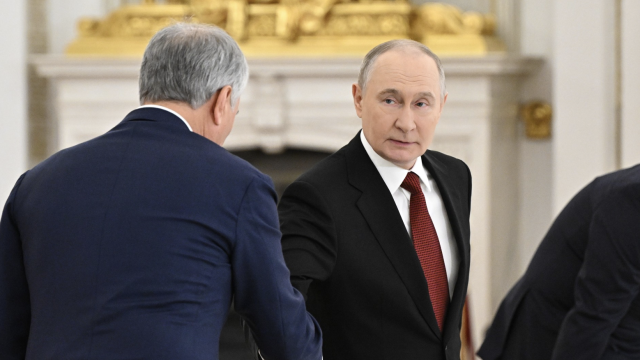President Dmitry Medvedev on Thursday signed into law a bill that strips the Federation Council speaker from confirming the credentials of new senators, the Kremlin said, ending a procedure that was known to sometimes take months of elaborate checks.
Under the new rules, a candidate will automatically become a senator on the 10th day after his appointment by regional authorities. The law takes effect on Jan. 1.
The speaker, Sergei Mironov, who heads the pro-Kremlin A Just Russia party, opposed the bill, introduced by rival pro-Kremlin United Russia, which controls both houses of parliament.
In an article published in Vedomosti on Nov. 9, Mironov predicted that the new rules could allow people with low professional skills to become senators, lowering the quality of the chamber's work on bills.
Nevertheless, Mironov said he convinced fellow senators to support the legislation. He was the only senator to vote against the bill, which was previously approved by the State Duma.
Meanwhile, Mironov is drafting am amendment that might give parties a chance to participate in proposing gubernatorial candidacies to the president, Kommersant reported Thursday.
Currently, the party that wins regional legislative elections has the right to pitch candidacies to the president, regardless of how many votes it collects in elections. United Russia has been winning most elections at all levels for years, often with more than 50 percent of the vote.
Mironov's proposal says that if no party garners more than 50 percent of the vote, a coalition of parties that jointly have more than 50 percent of the vote should be granted the right to propose gubernatorial candidacies.
Mironov's bill could break United Russia's monopoly on the right to propose governors in St. Petersburg and the Novosibirsk, Severdlovsk and Kurgan regions, Kommersant said.
Separately, Kremlin first deputy chief of staff Vladislav Surkov said Thursday that United Russia might fail to collect two-thirds of the vote in the 2011 Duma elections and "will have to enter into coalitions to pass a number of important issues," RIA-Novosti reported.
A Message from The Moscow Times:
Dear readers,
We are facing unprecedented challenges. Russia's Prosecutor General's Office has designated The Moscow Times as an "undesirable" organization, criminalizing our work and putting our staff at risk of prosecution. This follows our earlier unjust labeling as a "foreign agent."
These actions are direct attempts to silence independent journalism in Russia. The authorities claim our work "discredits the decisions of the Russian leadership." We see things differently: we strive to provide accurate, unbiased reporting on Russia.
We, the journalists of The Moscow Times, refuse to be silenced. But to continue our work, we need your help.
Your support, no matter how small, makes a world of difference. If you can, please support us monthly starting from just $2. It's quick to set up, and every contribution makes a significant impact.
By supporting The Moscow Times, you're defending open, independent journalism in the face of repression. Thank you for standing with us.
Remind me later.





